Modern, human mothers often feel like they can never do enough. Quite frankly, the last thing they need is some mother from another species demonstrating that, yes, there’s even more sacrifice that could be made for the benefit of their demanding offspring.
But perhaps mothers from other species can teach us a thing or two about the full range of experiences in being a mother. Take our tour of some of the Bay Area mothers who live among you, and give your mother (or yourself) a big hug because surely you and yours are doing what’s best. Happy Mother’s Day!
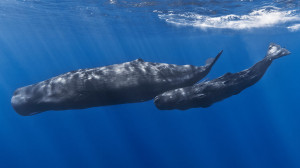
Sperm whales: Nine months may seem like an eternity, but sperm whales gestate almost twice as long (14-16 months) and suckle for several years. Mothers remain closely bonded with their calves through adulthood, when the young form a part of a larger a matriarchal family unit that stays together all their lives. Now that’s what you call attachment parenting. That is, except for the males who leave between ages 4 to 21 and form “bachelor schools” until they are sexually mature and then become loners. The mother-daughter relationship is definitely primo.
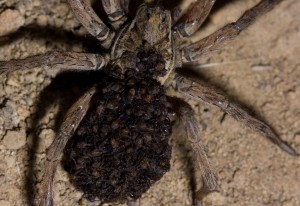
Wolf spiders: The female wolf spider leaves her children fatherless after eating her mate. But she makes up for it soon afterwards when she makes a silk bed for her eggs, complete with a silk blanket (much softer than knitting with yarn!). She then attaches the egg sack to spinnerets and carries it around with her on her daily errands. Once born, the babies climb onto her back and stay for weeks as they grow up, feeding off their yolk sacks. They go everywhere with her, including hunting, and if someone falls off, she’ll stop and wait for her baby to climb back aboard.
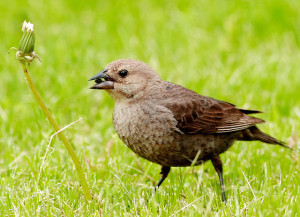
Brown-headed cowbird: Now this is a mother you don’t want to have. Here she is happily eating a seed after she’s abandoned her eggs in another mother bird’s nest. She does this because instead of child-rearing, she devotes her energy to producing sometimes more than three dozen eggs in a season. Her baby chicks are usually the first to hatch, and therefore get first feeding dibs from the unwitting foster mother. Another fun fact: the cowbird individually chooses which bird species to make its host, but is known to behave in this parasitic way with more than 200 different species.
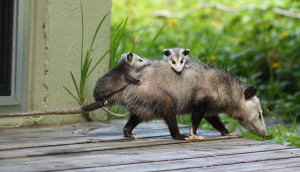
Opossums: It’s tough being a marsupial. About a dozen opossum babies emerge when they are as small as a honeybee and crawl into mother’s pouch to nurse and grow, where they stay until they are big enough to enter the big wide world. But they’re not ready to be on their own yet. They’ll hang onto mama’s fur for several weeks, and eventually get so heavy they fall off. Upon which, mother opossum is no doubt ready to be rid of them.
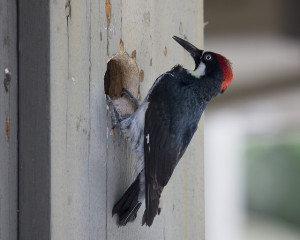
Acorn woodpeckers: This bird gets mixed reviews. Acorn woodpeckers are a very social species and like to nest with other females. The problem is that everyone is laying eggs at different times. So the females will dispose of any early eggs and wait until they are all laying on the same day so they can raise the chicks together as a brood. The ones that survive end up staying with their parents for several years to help defend their stash of acorns and rear younger siblings.
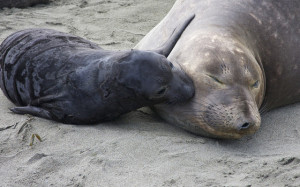
Elephant seals: While we complain about how to lose postpartum baby fat, elephant seal mothers go on a three month fast, during which they transfer all their extra pounds over to their offspring. The babies suckle on the rich milk, which is so thick it has the consistency of pudding. The mother also helps protect the babies from aggressive males as they throw their weight around the beach in competition for mates. By the time the mothers head back to the sea, the babies are so fat they are called “weaners.”

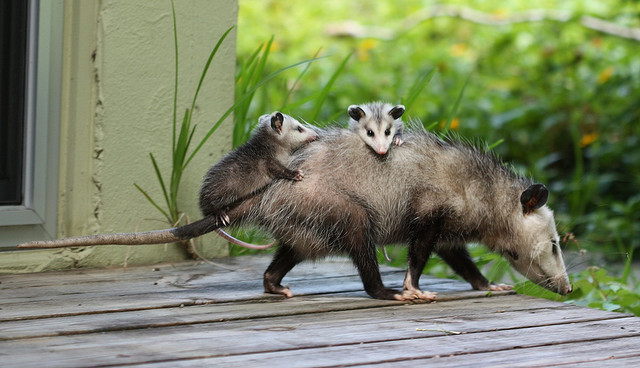
-300x280.jpg)